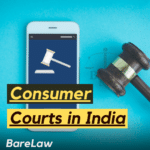Introduction
In this era, it is very evident that most of the work is going online instead of offline mode.
There are many reasons 0of adapting the online mode. It’s complicated as well as simple at
the same time. The increase in online work mode has led to an increase in disputes arising
online. The disputes that arise online have to be resolved online and the mechanism is known
as “Online Disputes Resolution”. The ODR is gaining importance because of the increasing
need for e-commerce. It becomes easy for people to register and solve their issues in online
mode as it is more convenient.
The increase in ODR is mainly being accompanied by the blockchain. It is being referred to
as a secure place for storing data and for transferring money. The data that is stored in the
blockchain is tough to change and misplace. This technology makes users sure that their
information is safe and secure. Blockchains are secured through mathematical ways of
decision-making and cryptographic techniques. The companionship of ODR and blockchain
is one of the good steps that have been taken by online dispute mechanisms. In the time of
COVID-19, this is much more important than anyone would have thought of.
Role of Blockchain in ODR
Blockchain technology has many pros which include safe and secure data. For a case, it is
very important for the parties that the information they provide is safe and private.
Blockchain provides for the same and ensures that the data which is stored gets sealed so that
no one can use it illegally. in this, transactions are also validated and secured. The value of
transactions cannot be altered by anyone here.
The blockchain system aims at resolving conflicts in a safer way. As it has become clear that
e-commerce has been in demand for a long time, the decision for adapting ODR was also
necessary. Apart from saving and securing data, blockchain also helps in creating smart
contracts. It helps the parties to create agreements that are safe and there are no chances of
unwanted alterations in it. It is very clear at this point that the creation of smart contracts will
lead to resolving them in case of any disputes by online mode.
Blockchain technology is slowly penetrating the ODR arena in maximum ways.
The evolution of this technology has made the users feel secure that too from a distance.
Blockchain has deleted the need of having a middle man in the conflicts. The blockchain
covers the need of various actors at once such as a bank, a data storage, a transactional entity,
they are immutable, and many more characteristics that are needed for having a goof dispute
resolution mechanism.
One of the basic qualities of blockchain i.e. decentralization has made it the technology with
fixed processes and irreversible data entry. The role in this context of blockchain in ODR is
that it creates a sense of trust that the transactions that are being conducted online are free
from the world of cyber fraud.
Governance of Blockchain in ODR
The main function of ODR is to resolve disputes online without any physical appearance
which saves time and avoids unnecessary interventions. This is mainly being used with the
help of blockchain technologies. It might happen sometimes that there may arise some of the
disputes that might be extraterritorial or there may be some errors which are of the parties
that do not belong to the same country. In this condition, it becomes difficult for taking
decisions over the governance of blockchains. The clients from different countries have different
laws and might want to use them separately and this creates a fuss.
The cons that exist in using blockchain technology with ODR is about the proper governance
of it. It is a matter of importance that whenever some conflict arises, a proper governing body
must exist to resolve them. However, due to the late adaption of these technologies, this aspect is
still absent in some ways and this needs attention. It will be more compatible for the users to
have trusted over blockchain will having ODR if it will have proper governance. The issue of
governance can also be resolved by looking into the matter with the aspect of users as they
play a vital role here.
Importance of Blockchain in ODR
The increase in the use of blockchain technologies in the ODR has led to the development of
some of the online dispute resolution systems with the mechanism of blockchain. The
importance of blockchain is increasing every day. Kleros is the arbitration system that
focuses on smart contract-related disputes.iv It is a dispute resolution mechanism that
addresses the concepts of blockchain. It aims at providing justice to the people in a
secured, just, and fair manner.
Aragon is also one of the platforms that provide for dispute resolution in the form of a
decentralized app. It aims at making the operations simpler and smoother with the help of
blockchain technology. It provides for a mechanism of dispute resolution through online adjudication.v
Similarly, Sagewise provides a platform with blockchain technology
for resolving disputes related to flawed smart contracts.vi These platforms are implementing
blockchain technology for a reason.
The adaption of blockchain technology by the different dispute resolution mechanisms
shows that blockchain has gained importance with the ODR. This technology has made the
app developers and the mechanism develops to include it in their functioning. From saving of
data to having a secured system and to creation and adjudication of the smart contracts, the
blockchain technology has proved to all in one destination. It has gained importance due to
the functions that it plays at a single step. All the users want their data and information to be
secured and that is what the blockchain provides for. The importance of this will increase
with time as the need for ODR increases.
Legal Barriers
The use of blockchain has several legal barriers which include a lack of trust by the users. The
methodology of the blockchain is a bit complicated and many users don’t understand it. It
may lead to illegal steps which can be taken by the users that are well aware of the
technologies. The challenges that the blockchain is facing are solvable. There exist some areas
here where record-making is not so strong. Apart from this, there are also geographical
legal issues.
The issues that are arising in the use of blockchain for ODR can be resolved. The legal
barriers that are being faced are very common and are minor. These barriers are mainly
related to geographical areas, illegal usage, trust issues, and the lack of legal knowledge by
some users. These problems are indirectly related to the users that can be resolved by making
the users more knowledgeable. These barriers can be resolved and the legality will also
increase with it.
Conclusion
Blockchain technology emerged as a very useful tool concerning ODR. In the era of
increasing e-commerce, it became important to have such technology. As it is noticeable that
online fraud is also increasing so, it is important to a medium on which people can trust. Cases
are something that includes personal information of the clients that can easily be used
against them and this is why some people still not prefer the online mode. However, it is
evident from the research that blockchain plays the role of being a safe and secured place
for such documents and information. Though blockchain technology has some barriers and drawbacks, it is also
important to notice the roles it plays. The barriers can be removed to make use of such
beneficial technology. The adaptation of this technology by the ODR mechanisms also
proves the authenticity of the blockchain. Overall, it is very much clear that the role of
blockchain in ODR is very vital and the use that ODR is making of the blockchain
technology is for the benefit of both users and the mechanism of ODR.
I What makes a Blockchain Secure?
https://academy.binance.com/en/articles/what-makes-a-blockchain-secure
ii Tina van der Linden’, ODR and Blockchain, International Journal of Online Dispute Resolution, 2017
https://heinonline.org/HOL/LandingPage?handle=hein.journals/ijodr4&div=24&id=&page=
iii Orna Rabinovich-Einy and Ethan Katsch, Blockchain and the Inevitability of Disputes: The Role for Online
Dispute Resolution, 2019 J. DISP. RESOL. (2019)
https://scholarship.law.missouri.edu/jdr/vol2019/iss2/6
iv The Blockchain Dispute Resolution Layer, KLEROS,
https://kleros.io
v
. ARAGON
https://aragon.org/
vi James Sower, Sagewise Pioneers Dispute Resolution for Smart Contracts, ICO CROWD (July 21, 2018),
http://icocrowd.com/sagewise-pioneers-dispute-resolution-for-smart-contracts







